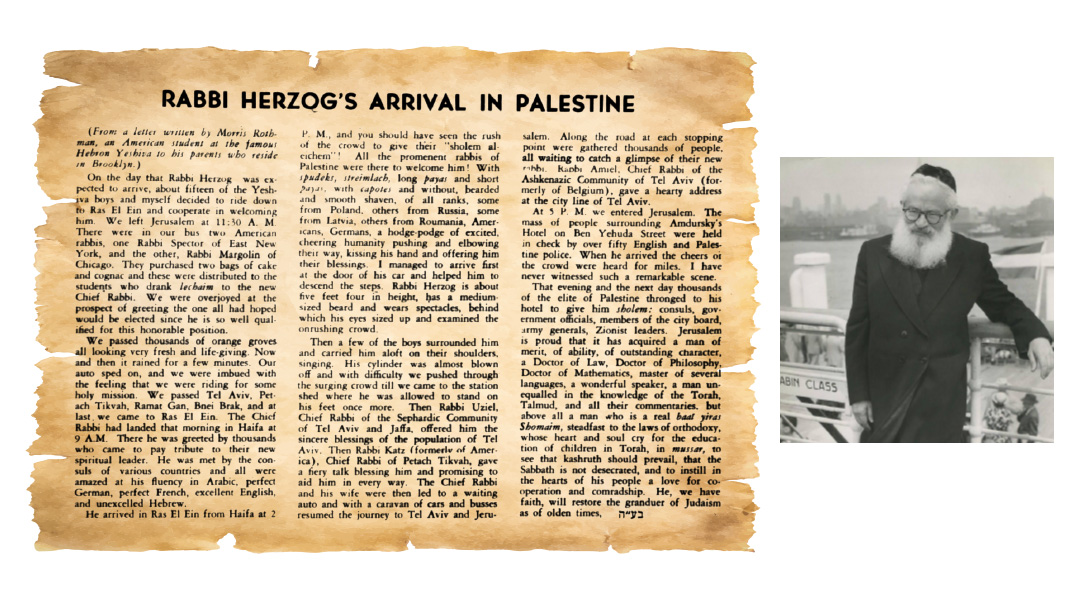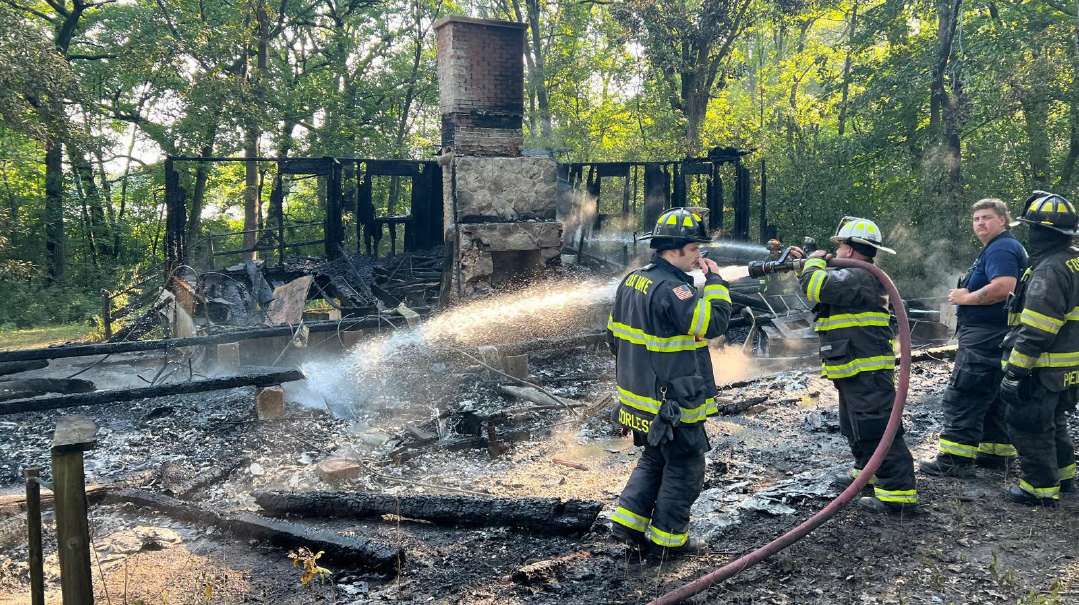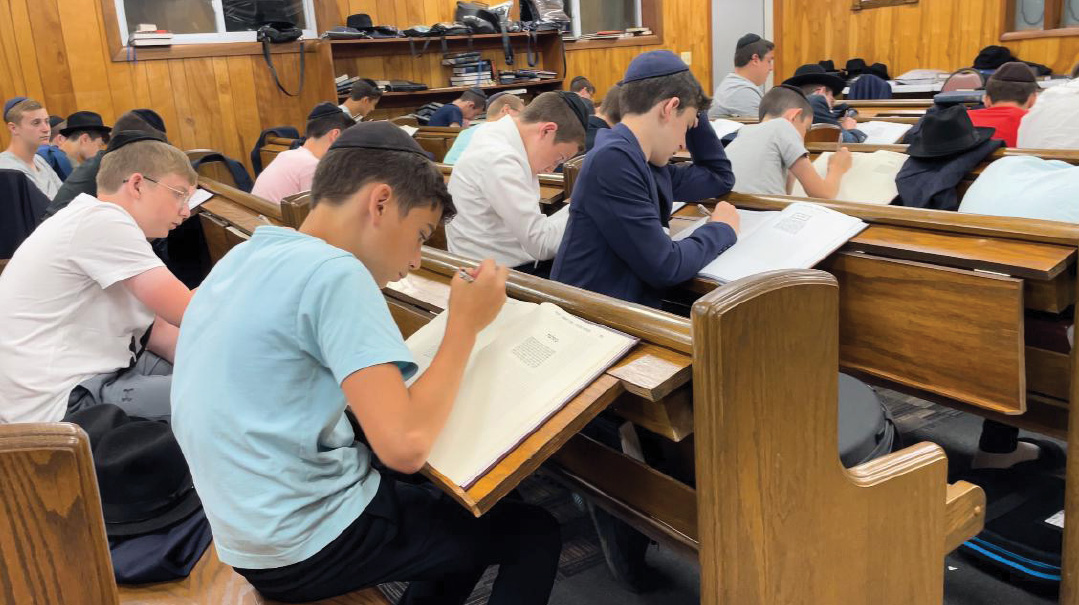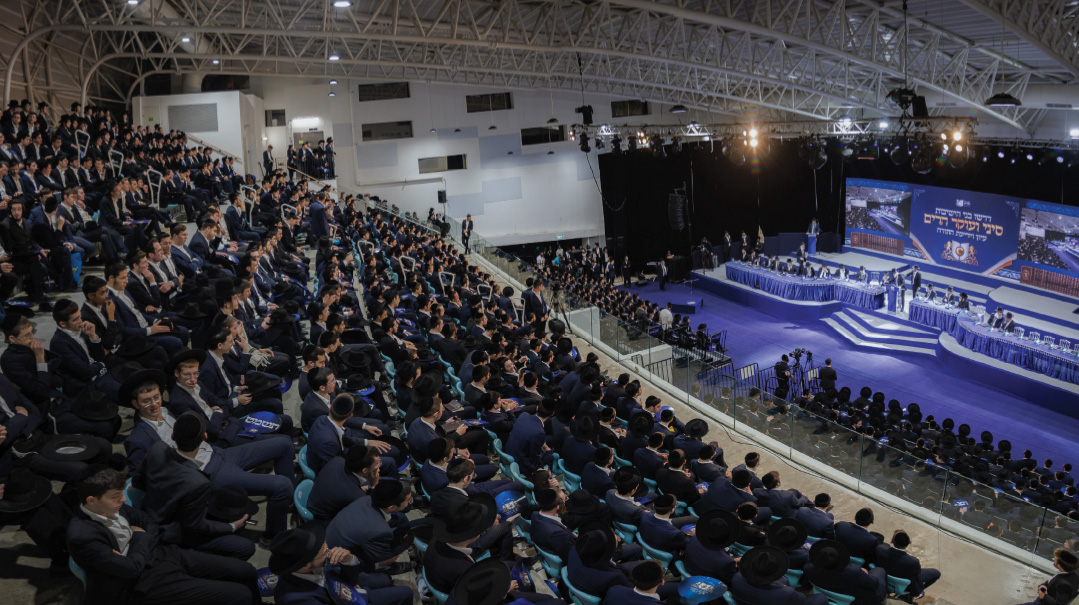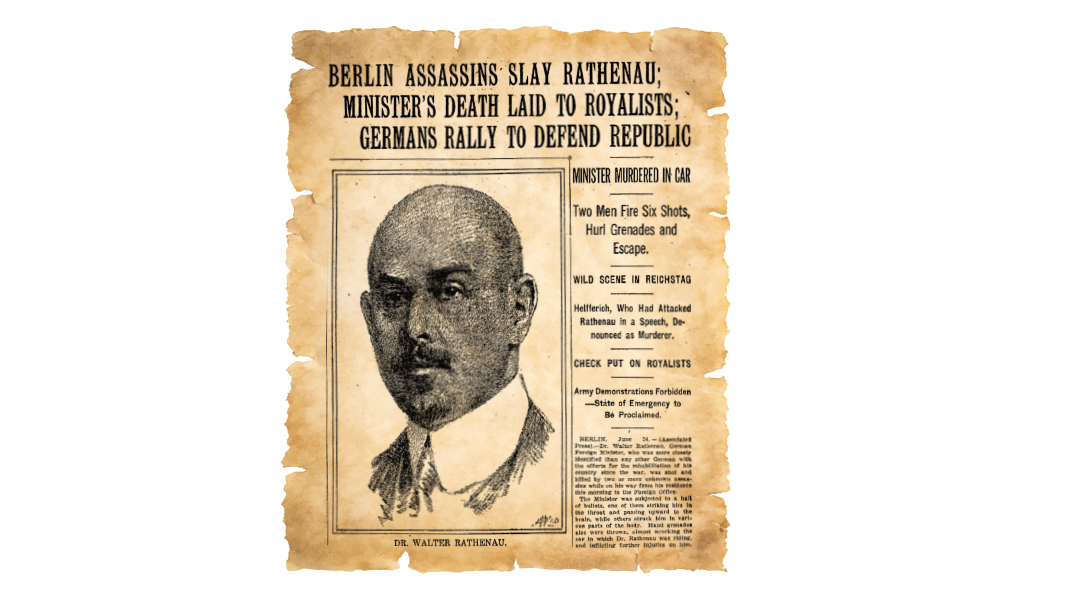The Moment: Issue 1000
| February 20, 2024They were Rebbe and Rebbetzin. They were father and mother. They were king and queen
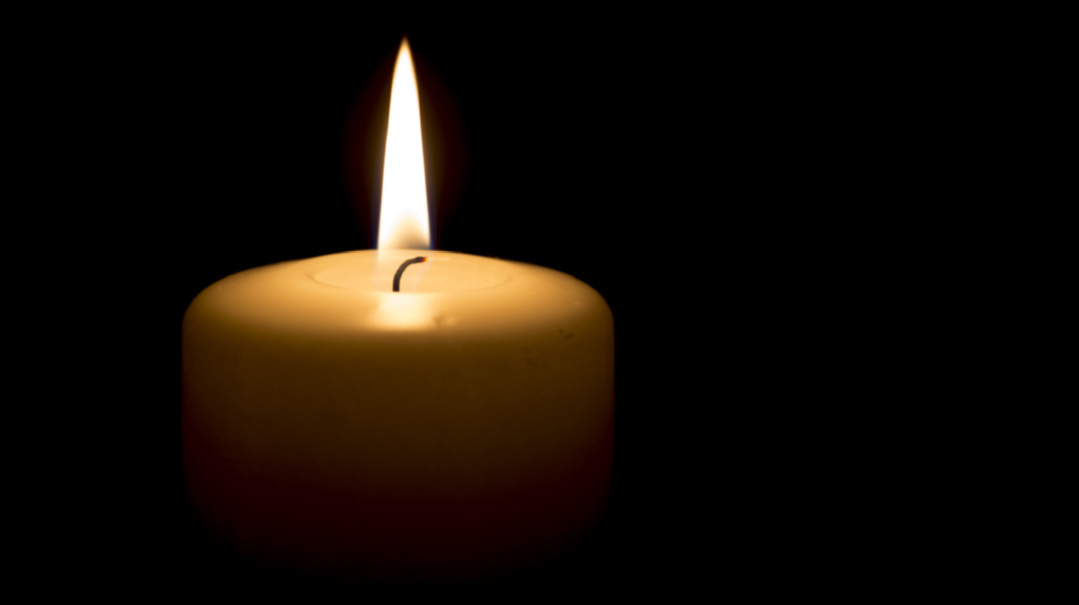
Living Higher
T
his past Sunday, Klal Yisrael lost a queen in its most literal sense. As the oldest daughter of the previous Vizhnitzer Rebbe, Rebbetzin Chaya Chana Twersky a”h, the Skverer Rebbetzin, was a link in a long chain of royalty. Her marriage to Rav Dovid Twersky, the current Skverer Rebbe, led her to New York, far from her hometown of Bnei Brak. But as time would prove, that distance was merely geographic. Working together, the Rebbe and the Rebbetzin cultivated an atmosphere of uncompromised kedushah; while New Square may be based in Ramapo, New York, its pulsing spirit seemed to emanate from Bnei Brak.
The community, numbering in the thousands, looked toward its leaders with tripartite reverence. They were Rebbe and Rebbetzin. They were father and mother. They were king and queen.
The Rebbetzin assumed these varying roles seamlessly. Even as the crowds around her continually swelled, the gentle, elegant smile never faded. The Rebbetzin’s regality never waned, and her memory never failed. She remembered her visitors by name and upon their next visit would follow up with questions about what they had discussed the time before.
“I would take my students and campers to visit her and receive her brachah,” says Mrs. Bella Weinreb, director of Camp Chayil and V’At Alis seminary. “I was always struck by her royalty and refinement. We all felt enveloped by her warmth, her giving, her regal air.”
The Rebbetzin would address the girls and share a devar Torah and divrei brachah. “She would bentsh the girls that they be a source of nachas to their parents,” says Mrs. Weinreb, “and then she would bentsh them that they should be nosei chein in the eyes of others. Of course, in Hashem’s eyes, but also in the eyes of bnei adam. The Rebbetzin really believed in the importance of being nosei chein b’einei bnei adam.”
It was a blessing she embodied as much as she bestowed. “She herself had tremendous chein,” Mrs. Weinreb reflects.
As large as her kehillah grew, the Rebbetzin was a fully devoted mother to her immediate family. Yet the last simchah she attended wouldn’t be a grandchild’s wedding, nor even a community member’s. The Rebbetzin was already quite unwell and had ceased to attend simchahs when a bochur who wasn’t from New Square but learned in the Skverer yeshivah and would help out the Rebbe and Rebbetzin, got married. She insisted on attending his wedding. It was one celebration that the Rebbetzin, the mother, the queen, couldn’t miss.
Today, while her kehillah mourns their loss, the streets of New Square continue to sparkle with a glow borrowed from far overseas. In the footprints the Rebbetzin leaves behind, the kedushah of Bnei Brak and the grandeur of true Jewish royalty live forever on.
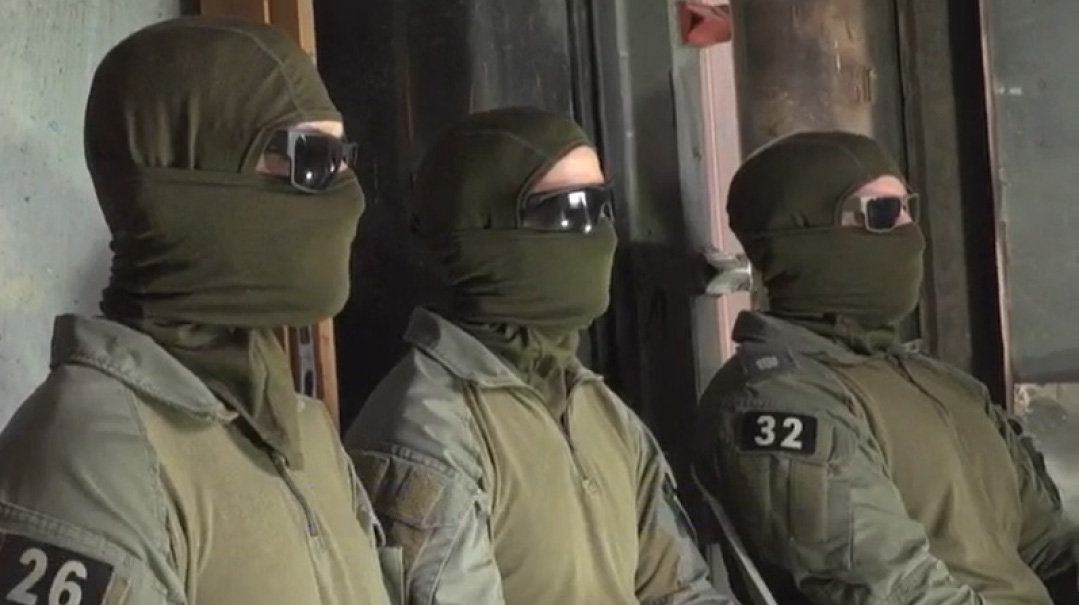
Hostage Homecoming
The miraculous rescue last week of two Israeli hostages — Fernando Simon Marman, 60, and Louis Har, 70 — captured worldwide fascination. But even as news reporters were denied interviews with the two men, a full beis medrash in Washington Heights was privy to direct communication with them.
Rabbi Shai Schachter, a Yeshiva University faculty member, was in Eretz Yisrael last week and visited the hospital where the two Israelis were being treated. Since security concerns did not allow for a minyan to gather, he placed a call to Rav Aryeh Lebowitz, the director of YU’s semichah program, who held up the phone in full view of the beis medrash. In line with a psak issued during Covid by Rav Herschel Schachter, the rosh yeshivah of Yeshiva University, stipulating that the brachah of Hagomel can be made even when the minyan is remote, Rabbi Shai Schachter dictated the words of the brachah to the two freed men. The whole beis medrash responded with resounding Amens. They then rose from their seats and burst into a spontaneous rendition of “Tov l’hodos l’Hashem!”
The deep feeling of gratitude was felt across Jewish communities across the spectrum. After months of davening for brothers we’ve never met, their yeshuah has taken on personal meaning for so many.
Help from Above
In an interview with Israel’s Channel 14, the Yamam team that rescued the two hostages rehashed the terrifying details of the heroic operation.
The reporter concluded the interview with the question, “How could it possibly be that you carried out such a risky operation in a hornet’s nest of terror, killing dozens of terrorists guarding the building, without a single injury to anyone on your team?
Members of Yamam never show their faces. From behind dark glasses and an olive-green balaclava, the leader of the team responded: “It was a miracle — the Borei Olam, plus the extreme professionalism of our team.”
He added, “We had help from Shamayim — I have no doubt that our friends who were killed on October 7 were looking down at us while we worked and pulling strings from Up There to keep us all safe.”
An Auspicious Moment
The Tehillim Army is a nightly program run by Mrs. Tziri Preis that gathers between 5,000 and 10,000 children together in saying Tehillim on behalf of Eretz Yisrael, with one child selected to lead. Last Sunday, a boy named Moshe Chaim from California was appointed “chazzan.” As he was about to begin Perek 20, Mrs Preis suddenly interjected a request.
“When you get up to pasuk ches,” she asked, “can you please shout out the words ‘Eileh va’rechev v’eileh va’susim, va’anachnu b’sheim Hashem Elokeinu nazkir’? Shout it out real strong, okay?”
The boy listened to her carefully, and when he reached that pasuk, he cupped his hands to his mouth and belted it out, with thousands of children following suit.
The next day, the news broke that two hostages had been miraculously rescued. Many people pointed out to Mrs. Preis that the rescue took place while the children were reciting Tehillim. That concurrence was noteworthy and encouraging.
But then more details about the rescue emerged. The hostages were freed at precisely 1:49 a.m. Israel time. Something about that sparked Mrs Preis’s curiosity, and she went back to the video from the previous night. It took some calculating, but she was able to conclusively confirm something.
The precise minute that Moshe Chaim shouted out the verse affirming that Hashem is the One Who wages our battles was… 6:49 p.m. EST. The cries of thousands of children pierced the Heavens, and, 5,000 miles away, rechev and susim fell limp before Hashem Elokeinu.
(Originally featured in Mishpacha, Issue 1000)
Oops! We could not locate your form.

